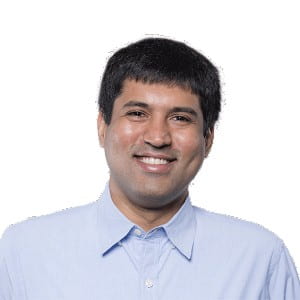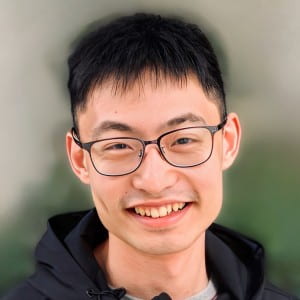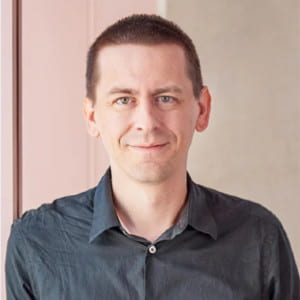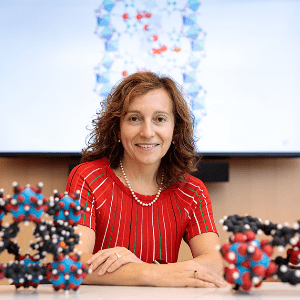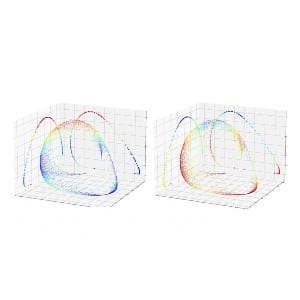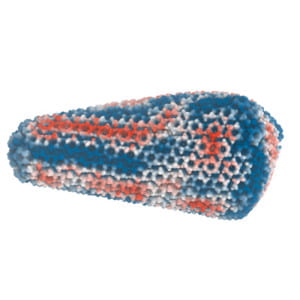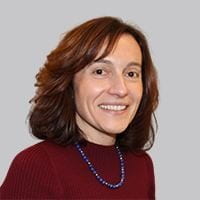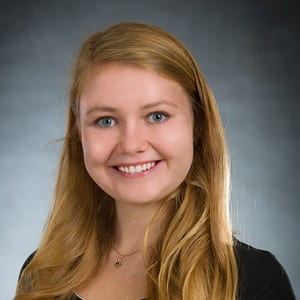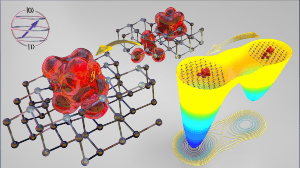News & Features

Giulia Galli awarded 2025 Berni J. Alder CECAM Prize
June 3, 2025 — CECAM has announced that Prof. Giulia Galli, Professor of Chemistry at the University of Chicago and Director of the Midwest Center for Computational Materials, has been awarded the 2025 Berni J. Alder CECAM Prize. She is recognized for her groundbreaking contributions to computational molecular science, including the development of innovative simulation methods and the integration of theory with experiment.
Award citation: “Over the past three decades, Prof. Galli has been a leader in the development of novel methods for large-scale electronic structure and molecular dynamics simulations. She has been an outstanding advocate for computational science and served the international community in a variety of important roles. Her leadership has been widely recognized, and her work and commitment to the development of the field have inspired colleagues, collaborators, and students across the globe.”
Congratulations to Prof. Galli on this prestigious and well-deserved recognition!
Read more about the award and her achievements on the CECAM website.

CCTCh Celebrates Prof. Gregory Voth’s ACS Award in Theoretical Chemistry
May 7, 2025 — The Chicago Center for Theoretical Chemistry (CCTCh) gathered to celebrate a major milestone: Prof. Gregory Voth’s receipt of the 2025 American Chemical Society (ACS) Award in Theoretical Chemistry. This prestigious honor recognizes Prof. Voth’s pioneering contributions to computational chemistry, including the development of multiscale simulation methods and fundamental insights into complex condensed phase systems. The celebration brought together colleagues, students, and collaborators to honor Prof. Voth’s remarkable achievements and lasting impact on the field. For more information, read here.

Professor Giulia Galli Awarded 2024-2025 Joseph O. Hirschfelder Prize in Theoretical Chemistry
August 6, 2024 — Professor Giulia Galli, Liew Family Professor of Electronic Structure and Simulations at the University of Chicago, has been named the 2024-2025 recipient of the Joseph O. Hirschfelder Prize in Theoretical Chemistry by the Theoretical Chemistry Institute. Galli, a leading expert in theoretical and computational methods for materials and molecular properties, will deliver talks at the University of Wisconsin–Madison on September 30 and October 1, 2024. She will be honored with a $15,000 award at a banquet on October 1, 2024. Galli’s groundbreaking work in sustainable energy and quantum technologies has earned her numerous accolades, and she joins an esteemed list of past Hirschfelder Prize winners, including four Nobel laureates. Learn more here

Daniel King, PhD Student in the Gagliardi Group gives a presentation on “Grounding Multireference Quantum Chemistry in a Good Basis: Applications and Methods of Active Space Selection”.
December 4, 2023 — PhD Student in the Gagliardi Research Group, Daniel King, gives an insightful presentation on “Grounding Multireference Quantum Chemistry in a Good Basis: Applications and Methods of Active Space Selection” at the Chicago Center for Theoretical Chemistry Group meeting.
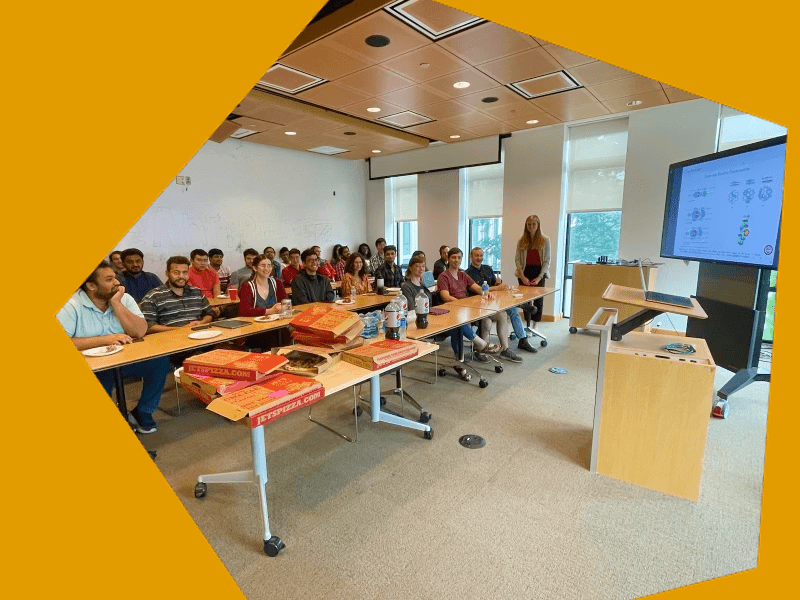
Anna Schouten, PhD Student in the Mazziotti Group gives a presentation on “Exciton-condensate-like Amplification of Energy Transport in Light-harvesting”.
September 11, 2023 — PhD Student in the Mazziotti Research Group, Anna Schouten, gives a presentation on “Exciton-condensate-like Amplification of Energy Transport in Light-harvesting” at the Chicago Center for Theoretical Chemistry Group meeting. Anna graduated with her B.S. in Chemistry from Brigham Young University in 2020. While there, she conducted undergraduate research with Professor Daniel Ess. Anna received the R. Stephen Berry Memorial Research Fellowship from the Chemistry Department for the 2022-2023 academic year and her research interests focus primarily on strong correlation and exciton condensation.
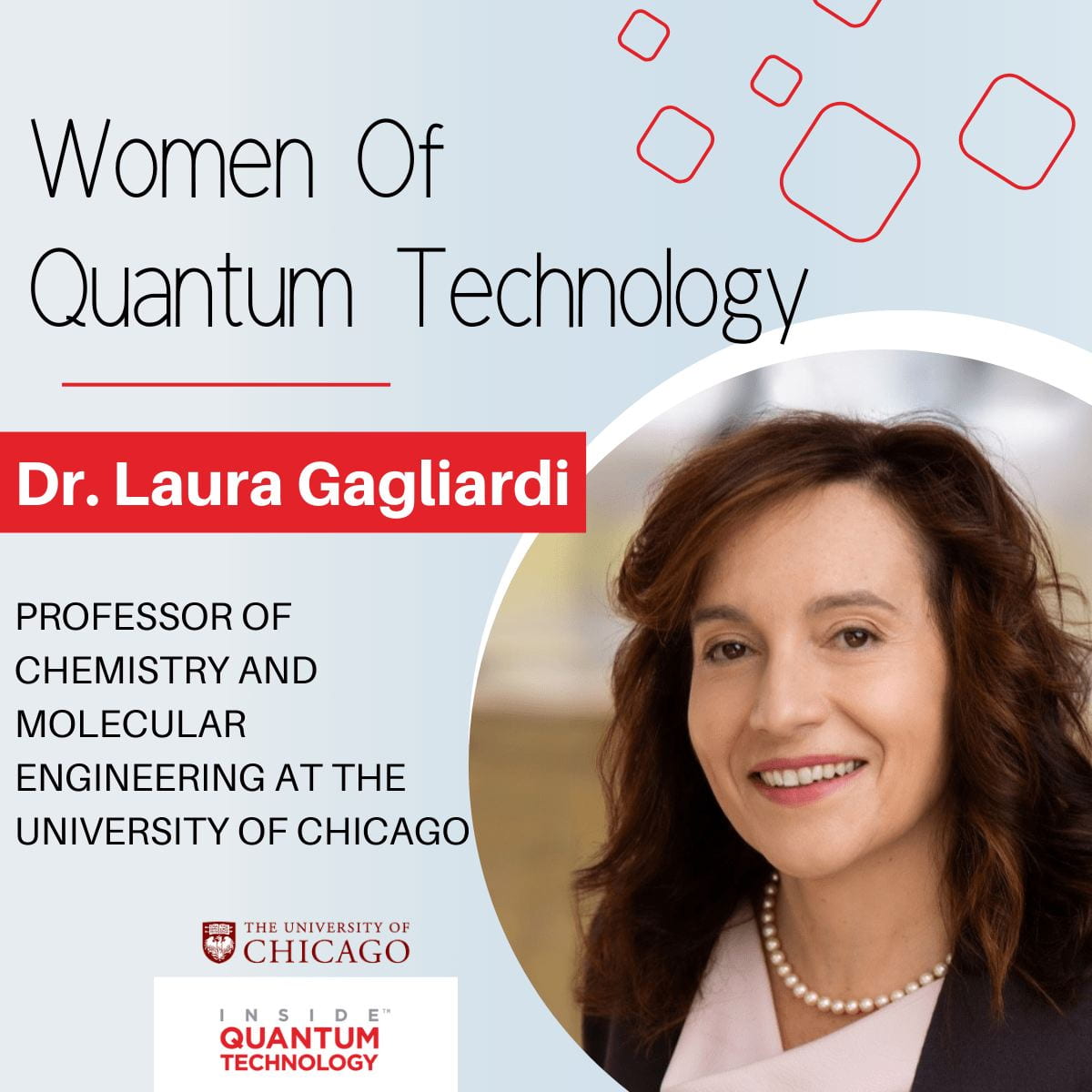
Laura Gagliardi is featured on Inside Quantum Technology News’ Women of Quantum Technology series.
September 6, 2023 — Laura Gagliardi, Director of the Chicago Center for Theoretical Chemistry (CCTCh), is featured on Inside Quantum Technology in an interview where she discusses her journey from Italy to the US, her passion for the field of Quantum Chemistry and the vital role of theoretical chemistry in shaping the future of the field. Read full publication here.
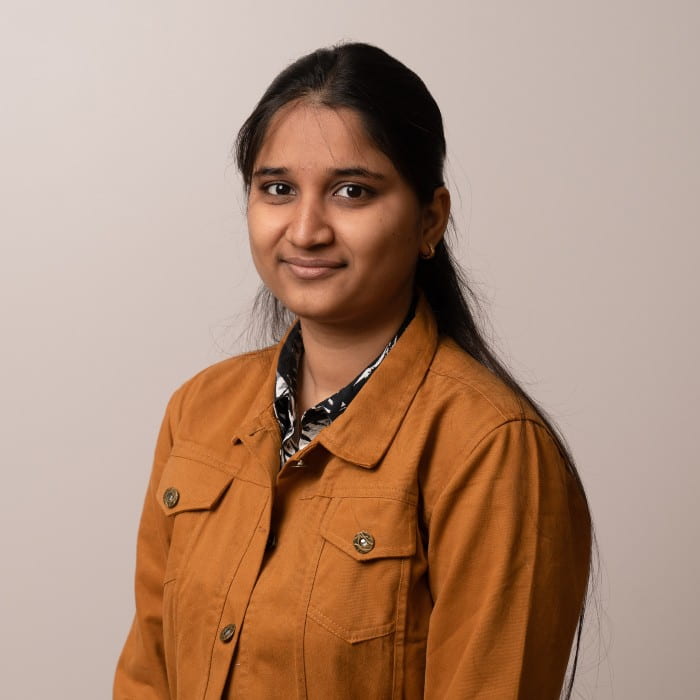
Shreya Verma Receives Honorable Mention in the 2022-23 PME Outstanding Teaching Assistant Awards.
August 29, 2023 — The Gagliardi group congratulates Shreya Verma for achieving honorable mention in the 2022-23 Pritzker School of Molecular Engineering’s Outstanding Teaching Assistant Awards. Shreya has earned this recognition for her exemplary service as a TA for the course MENG 25510 – Quantum Molecular and Materials Modeling.

Seminar on “Quantum Parallelizing Quantum Eingensolvers for Excited States by visiting scientist, Dr. Carlos Benavides-Riveros.
July 25, 2023 — CCTCh, in collaboration with the Mazziotti group, hosts an insightful talk on “Quantum Parallelizing Quantum Eingensolvers for Excited States” by visiting scientist, Dr. Carlos Benavides-Riveros. From excited-state quantum chemistry to superconductivity, quantum computing, and machine learning, Dr. Benavides-Riveros’ research spans diverse and cutting-edge topics.
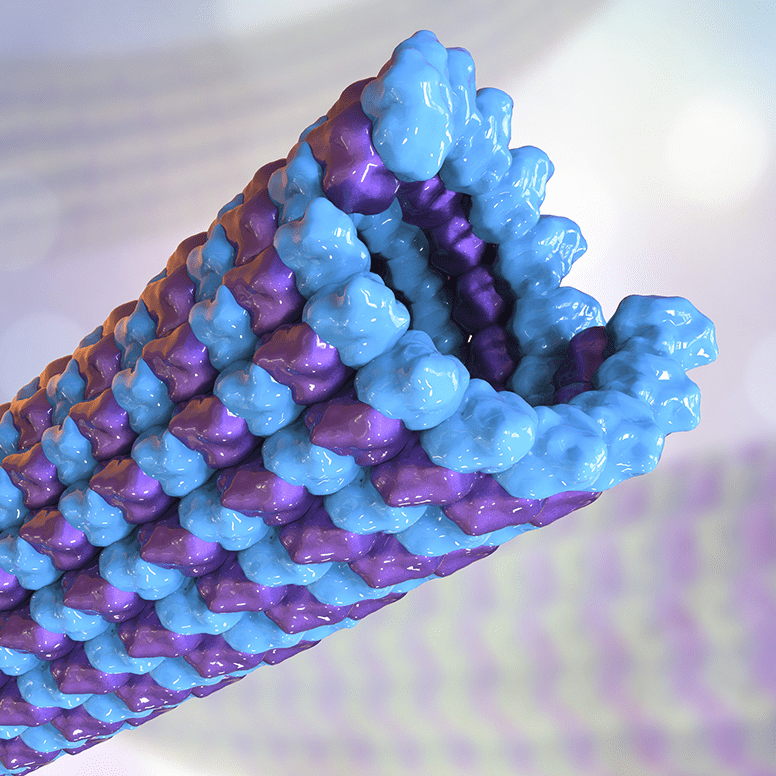
New discovery in microtubule formation by the Voth Group, led by Gregory Voth, and postdoctoral fellow, Daniel Beckett.
July 18, 2023 — UChicago News features a new discovery from the exceptional work of Gregory Voth and postdoctoral fellow Daniel Beckett. Gregory Voth, a Haig P. Papazian Distinguished Service Professor of Chemistry at UChicago and CCTCh faculty member, together with Daniel Beckett, a talented postdoctoral fellow, uncovered a significant mechanism in microtubule growth. The discovery has potential to provide new insights for cancer treatment.” Learn more here
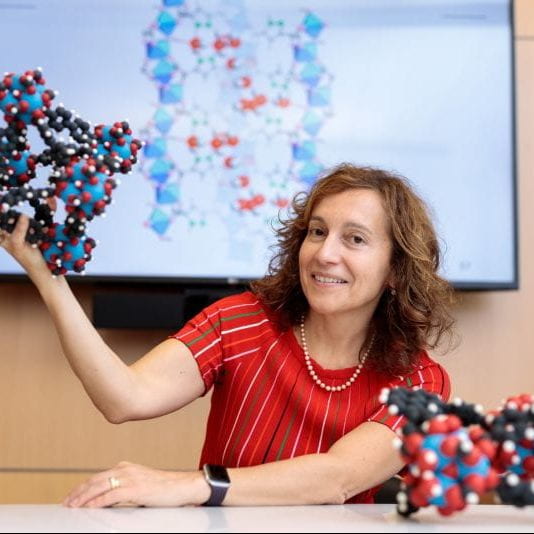
Laura Gagliardi has been awarded the 2023 Pauling Medal Award for Outstanding Achievements in Chemistry
July 7, 2023 — Laura Gagliardi, the Richard and Kathy Leventhal Professor as well as the Director of the Center for Computational Chemistry, has been selected as the distinguished recipient of the Linus Pauling Medal Award. Professor Gagliardi’s exceptional achievements in the field of Chemistry are being recognized for her pioneering advancements in electronic structure theories and her inventive application of combined classical and quantum methodologies. Her groundbreaking work has significantly accelerated the progress in developing novel materials, including reticular frameworks. Gagliardi’s outstanding contributions have earned her widespread acclaim and esteemed recognition within the scientific community. Learn more here

CCTCh announces research fellowship
July 3, 2023 — The CCTCh invites exceptional young scientists who have recently been awarded, or who are about to be awarded, the doctoral degree at institutions around the world to submit an online application for a CCTCh Research Fellowship in Theoretical Chemistry. Application materials for this year’s fellowship are due by November 1, 2023. Learn more here.
NSF Graduate Research Fellowship Program (GRFP) Award
NSF has awarded five students the Graduate Research Fellowship Program (GRFP) award
This year’s recipients are:

Irma Avdic is a second-year Ph.D. student in the Mazziotti group. Her current research focuses on developing novel computational techniques that will maximally utilize noisy quantum computers as new-generation quantum sensors. She uses one-electron theories from the generalized Pauli exclusion principle to study the openness of few-qubit systems and the effect noise on noisy intermediate-scale quantum (NISQ) devices has on these systems, specifically for applications in quantum sensing. She hopes that theoretical insight into the role of quantum computers in quantum sensing technology will be significant in the experimental implementation of molecular multi-qubit quantum sensors that may be used to map protein structures and dynamics, optimize spintronic devices, and even detect dark matter.

Ian Bongalonta is a second-year theoretical chemistry PhD student in the groups of Professors Aaron Dinner and Andrei Tokmakoff. He is interested in chemical dynamics, specifically nonequilibrium relaxation processes and the connections between two-dimensional infrared spectroscopy and classical molecular dynamics. Currently, he is studying the role of disorder in the structure of insulin. Ian is also interested in the implementation of new pedagogical theories as Chicago Center for Teaching and Learning Fellow. Outside of the lab, he plays bassoon with the University of Chicago Symphony Orchestra.

Seth Freedman is a second-year organic chemistry PhD student in Professor Scott Snyder’s research lab. Interested in natural product total synthesis, he is currently working towards developing gold-catalyzed transformations to provide facile access to difficult natural product structures. Ultimately, this work will be utilized towards the total synthesis of complex natural products.

Jose Guerra is a 2nd year theoretical chemistry PhD student working in Prof. Benoît Roux’s lab. He is interested in the study of proteins and their function. Jose utilizes a variety of computational methods to study the underlying principles behind ion transport in P-type ATPase pumps. Importantly, these molecular machines are noted for their incredible efficiency and the mechanisms that govern the coupling of chemical energy to work are still elusive despite several decades of research on the system. Overall, the work will provide details on the fundamental process of transport in P-type Pumps. Outside of lab, Jose is the chair of Recruitment and Retention on the UChicago Diversity Advisory Board, a mentor for STEM signing day, and a of the Graduate Student Engagement and Community team for Científico Latino.

Matthew Hennefarth is a second-year theoretical chemistry PhD student and a member of Professor Laura Gagliardi’s research group. He is interested in electronic structure methods which are applicable to studying quantum dynamics and light-matter interactions. He is currently developing a new multi-state pair density functional theory which can give the correct potential energy surface topology near conical intersections, respect spatial and spin symmetry when present, and generate quantitatively accurate molecular properties. Ultimately, Matthew wishes to apply this method to various iron-sulfur cluster proteins which play important roles in photosynthesis, cellular respiration, and nitrogen fixation to name a few.
Suri Vaikuntanathan awarded the 2023 Early Career Award in Theoretical Chemistry
February 14, 2023 — Suri has been named the recipient of the Early Career Award in Theoretical Chemistry from the Physical Chemistry Division of the American Chemical Society. The award recognizes outstanding contributions in experimental physical chemistry by early career scientists. The recipient presents their research in one of the PHYS symposia and will be honored at the annual PHYS reception.
Yihang Wang awarded Eric and Wendy Schmidt AI in Science Postdoctoral Fellowship
February 13, 2023 — Yihang Wang (former CCTCh Fellow) has been awarded the Eric and Wendy Schmidt AI in Science Postdoctoral Fellowship at UChicago. The fellowship seeks to change how science is done by accelerating the incorporation of AI techniques into the natural sciences, engineering, and mathematical science (STEM), providing access to AI tools and training to the sharpest minds on the frontlines of scientific innovation. Learn more here.
John Jumper and AlphaFold developers win US$3-million Breakthrough Prize
September 28, 2022 — John Jumper (former graduate student, Freed group) and the researchers behind the AlphaFold artificial-intelligence (AI) system have won one of this year’s US$3-million Breakthrough prizes — the most lucrative awards in science. The team developed AlphaFold, an AI that can predict the structure of proteins. The award was one of five Breakthrough prizes — awarded for achievements in life sciences, physics and mathematics. Learn more here.
The Catalyst Design for Decarbonization Center (CD4DC) has been awarded to UChicago and Laura Gagliardi will serve as Director
August 29, 2022 — Laura Gagliardi is the Director of the Catalyst Design for Decarbonization Center (CD4DC), a Department of Energy-sponsored Energy Frontier Research Center (EFRC). The U.S. Department of Energy has awarded researchers at the University of Chicago $12.5 million to advance work aimed at finding innovative solutions for long-lasting hydrogen energy research — potentially offering a zero-emission alternative to fossil fuels. Based at the University of Chicago, the CD4DC will partner with researchers at Argonne National Laboratory, Clemson University, Northwestern University, Pacific Northwest National Laboratory, Stony Brook University, and the University of Illinois at Chicago, and the University of Minnesota. Learn more here.
David Mazziotti leads effort to create a method which efficiently calculates quantum phase transitions
August 10, 2022 — David Mazziotti’s recent collaboration suggests a new way to work with the complex mathematics behind quantum phase transitions, which could help lead to new discoveries and technologies. Instead of creating a simulation that calculates every single variable in a given quantum system, they found a different approach: substituting a set of numbers that describes the possible interactions between each pair of electrons. This is called a “two-electron reduced density matrix.” Learn more here.
Greg Voth receives 2022 Machine Learning in the Chemical Sciences and Engineering Award
August 4, 2022 — Greg has been named a recipient of the 2022 Machine Learning in the Chemical Sciences and Engineering Award by the Camille and Henry Dreyfus Foundation. Initiated in 2020, the program provides funding for innovative projects in any area of Machine Learning (ML) consistent with the Foundation’s broad objective to advance the chemical sciences and engineering. The Foundation anticipates that these projects will contribute new fundamental chemical insight and innovation in the field. Learn more here.
Greg Voth’s supercomputing research helps reveal weaknesses in HIV-1 ‘armor’
June 21, 2022 — Greg headed an effort that revealed the most realistic simulation study of HIV capsid to date. This work furthered scientists’ understanding of how the HIV-1 virus infects and helped generate the first realistic simulations of its capsid, complete with its proteins, water, genetic material, and a key cofactor called IP6 recently discovered to stabilize and help form the capsid. Learn more about this work in these American Association for the Advancement of Science and National Science Foundation articles.
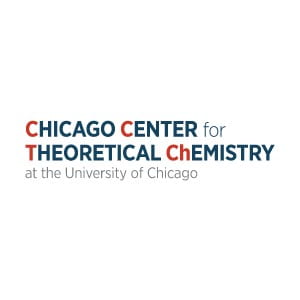
CCTCh announces research fellowship
July 6, 2022 — The CCTCh invites exceptional young scientists who have recently been awarded, or who are about to be awarded, the doctoral degree at institutions around the world to submit an online application for a CCTCh Research Fellowship in Theoretical Chemistry. Application materials for this year’s fellowship are due by November 1, 2022. Learn more here.
CCTCh announces sponsorship of two new awards
June 1, 2022 — The Chicago Center for Theoretical Chemistry (CCTCh) at the University of Chicago encourages early career and mid-career scientists working in the topical areas covered by the Theory and Computation (T&C) Subgroup of the Biophysical Society to submit an application for two new awards of the subgroup of the Biophysical Society. The submission deadline is August 1, 2022. Learn more here.
Greg Voth’s research highlighted by the National Science Foundation
May 31, 2022 — Greg led an effort to simulate a coronavirus infection — and discovered cooperative behavior in host cell receptor proteins that allow infection instead of resisting it. This effort was featured on National Science Foundation’s news webpage and the findings reveal the possible mechanism that fuses the virus to host cells. Learn more here.
Laura Gagliardi elected to the German Academy of Sciences Leopoldina
April 19, 2022 — Laura has been elected to the German Academy of Sciences Leopoldina, one of the world’s oldest existing learned societies. The German Academy of Sciences Leopoldina was founded in 1652 as a classical scholarly society and now boasts 1,600 members from almost all branches of science. Notable members include Johann Wolfgang von Goethe, Joseph Lister, Max Planck, and Albert Einstein. Throughout its history, 186 members have won Nobel prizes. Learn more here.
Benoit Roux’s research selected as the featured article on the Journal of Chemical Physics’ Twitter
April 8, 2022 — Benoit’s article “Transition rate theory, spectral analysis, and reactive paths” has been selected as the featured article on the Journal of Chemical Physics’ Twitter. This work on transition path analysis of two-state systems shows that the best one-dimensional reaction coordinate in a reduced subspace of coordinates is directed along the gradient of the committor. Learn more here.
Laura Gagliardi shares with Nature Computational Science for International Women’s Day
March 8, 2022 — Laura shares her research trajectory and projects, insights into the synergy between experimental and computational chemistry, and her advice for women and young scientists. Learn more here.
CCTCh members attend American Physical Society March meeting
March 8, 2022 — Multiple CCTCh members will attend and present at American Physical Society meeting being held during March 14 – 18 at the University of Chicago. Learn more here.
Greg Voth publishes article in PNAS on HIV lifecycle
March 1, 2022 — Greg led an effort that elucidates the physical properties involved in capsid rupture using a combination of large-scale all-atom molecular dynamics simulations and cryo-electron tomography. Researchers observed that intrinsic strain on the capsid forms highly correlated patterns along the capsid surface, along which cracks propagate. Capsid rigidity also increases with high strain. This work provides fundamental insight into viral capsid uncoating. Learn more here.
Greg Voth publishes article in Nature Communications modeling key steps of coronavirus
February 2, 2022 — Greg led an effort showing that spike trimers cooperatively bind to multiple ACE2 dimers at virion-cell interfaces in a manner distinct from binding between soluble proteins, which processively induces S1 dissociation. This work simulates possible variant behavior using perturbed CG models, and found that ACE2-induced S1 dissociation is primarily sensitive to conformational state populations and the extent of S1/S2 cleavage, rather than ACE2 binding affinity. These simulations reveal an important concerted interaction between spike trimers and ACE2 dimers that primes the virus for membrane fusion and entry. Learn more here.
Benoit Roux leads effort to build a supercomputing cluster supported by a $2M NIH grant
February 14, 2022 — Benoit is leading an effort to build a supercomputing cluster to explore structure and dynamics of biological systems. Biomedical research increasingly depends on high-performance computing for modeling and large-scale simulations of the molecular building blocks for biological functions. This effort received a $2 million NIH grant to develop a new computing cluster at the University of Chicago to power such data-intensive research. Learn more here.
Noah Dohrmann has been selected as a 2021-2022 Quad Undergraduate Research Scholar
January 28, 2022 — Noah Dohrmann (undergraduate student, Gagliardi group) has been selected as a 2021-2022 Quad Undergraduate Research Scholar. Quad Undergraduate Research Grants are competitive, open-discipline awards intended to enhance the educational experience of University of Chicago College students by supporting scholarly undergraduate research and creative inquiry experiences through active participation in faculty-mentored research structure and dynamics. Noah’s research interests are MOFs and catalysis. Learn more here.
Mazziotti group collaborates to simulate ‘fingerprint’ of noise on quantum computer.
January 25, 2022 — Mazziotti group collaborated with scientists at Purdue University to construct a unique “fingerprint” of the noise on a quantum computer as it is seen by a program run on the computer. “Noise” for a quantum computer increases as the computer is tasked with more complex calculations, it can quickly become a major obstacle. Scientists wondered if there was a way to work with the noise, instead of against it. This unique approach to the noise problem is helpful as researchers continue to explore the young field of quantum computing. Learn more here.
Alexandra Lamtyugina is a recipient of the 2022 Berkeley Statistical Mechanics Meeting Poster Session Prize
January 19, 2022 — Alexandra Lamtyugin (graduate student, Vaikuntanathan group) has been named one of four recipients of the 2022 Berkeley Statistical Mechanics Meeting Poster Session Prize. This work aims to identify the control principles governing the adaptable formation of non-equilibrium structures in actomyosin networks. The findings elucidate the relationship between energy dissipation, effective interactions, and pattern formation in active biopolymer networks, providing a control principle of cytoskeletal structure and dynamics. Learn more here.
Giulia Galli leads effort to improve control over the formation of vacancies in silicon carbide
January 4, 2022 — The DOE-funded Midwest Integrated Center for Computational Materials (MICCoM), headquartered at Argonne and led by Giulia Galli, efforts reaped a harvest of pivotal discoveries that should pave the way for new quantum devices. One is that the more silicon vacancies there are relative to carbon vacancies at the start of heat treatment, the more divacancies afterwards. Learn more here.
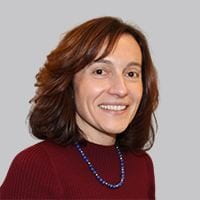
Laura Gagliardi announced as editor in chief of the Journal of Chemical Theory and Computation
December 21, 2021 — The Publications Division of the American Chemical Society (ACS) announced that Laura will lead the Journal of Chemical Theory and Computation (JCTC) beginning in 2022. ACS journals are among the most cited, most trusted and most read within the scientific literature. Learn more here.

Aleks Lykhin is a recipient of the Suzuki Postdoctoral Fellowship Award 2021-2022
December 21, 2021 — Aleksandr Lykhin (postdoctoral scholar, Gagliardi group) has been named one of two recipients of the 2021-2022 Suzuki Postdoctoral Fellowship Award. The award was established by Yuji Suzuki, former Council member of the Physical Sciences Division, in 2016 to recognize outstanding postdoctoral researchers. Aleks work in Prof. Laura Gagliardi’s group focus on the development of multireference electronic structure theories and modeling photochemical processes. Learn more here.

Laura Gagliardi examines water molecules in effort to improve water-collecting device
November 2, 2021 — As seen in the UChicago news story, Laura Gagliardi co-lead efforts to improve a device that can extract water out of the air, even in dry climates like deserts. Although the basis for this device was already developed, the exact mechanism of how it worked at the atomic level was not well understood. Using theoretical and computational methods, Gagliardi and two members of her group—graduate student Saumil Chheda and postdoc WooSeok Jeong— explore how the water molecules attach inside the framework at the atomic level. Read the full publication in Science here.

Giulia Galli receives Aneesur Rahman Prize for Computational Physics
October 15, 2021 — Giulia has been selected as the recepient of the American Physical Society ’s Aneesur Rahman Prize for Computational Physics, recognizing outstanding achievement in computational physics research. She won the prize for “the development of theoretical methods to compute and engineer the electronic and structural properties of molecules and materials, broadening the applicability of first-principles computational approaches to multiple disciplines, including nanoscience, and for many predictions subsequently confirmed experimentally.” Learn more here.

The Royal Society of Canada has elected Benoit Roux as a Fellow in the Class of 2021
September 7, 2021 — Benoit has been elected as one of eighty-nine new Royal Society of Canda Fellows. He was selected for this honor by peers for outstanding scholarly, scientific and artistic achievement. Learn more here.

Laura Gagliardi receives Faraday Lectureship Prize
June 9, 2021 — Laura has been named the winner of the Royal Society of Chemistry’s Faraday Lectureship Prize, celebrating the most exciting chemical science taking place today. She won the prize for contributions to the development of multireference quantum chemical approaches to describe catalysis and excited state phenomena. Learn more here.

Jaehyeok Jin receives Harper Dissertation Fellowship
May 25, 2021 — Jaehyeok Jin (graduate student, Voth group) has been awarded the William Rainey Harper Dissertation Fellowship. The Harper Fellowship is the highest honor awarded to the University of Chicago’s graduate students in recognition of outstanding achievement and professional promise. Jaehyeok’s dissertation research will focus on statistical mechanical paradigms for next-generation multiscale modeling. Learn more here.
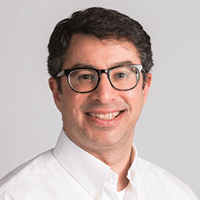
Aaron Dinner awarded 2021 Arthur L. Kelly Faculty Prize for exceptional service in the Physical Sciences Division
May 19, 2021 — Aaron Dinner was a 2021 recipient of the Arthur L. Kelly Faculty Prize for Exceptional Service in the Physical Sciences Division. The Kelly Prize celebrates faculty who, outside of their classroom teaching and research, have made exceptional efforts in promoting and supporting the Physical Sciences Division. Learn more here.

Laura Gagliardi elected to the National Academy of Sciences
April 26, 2021 — Laura Gagliardi was elected into the National Academy of Sciences. This honor recognizes her distinguished and continuing achievements in original research.

Giulia Galli investigates solar fuel production
February 19, 2021 — As seen in the UChicago news story, Giulia Galli co-lead efforts to understand and improve photoelectrodes used in solar fuel production. The researchers found that modifying the topmost layer of atoms on the surface of electrodes can significantly boost their performance. Read the full publication in Nature Energy here.
CCTCh announces research fellowship
February 8, 2021 — The CCTCh invites exceptional young scientists who have recently been awarded, or who are about to be awarded, the doctoral degree at institutions around the world to submit an online application for a CCTCh Research Fellowship in Theoretical Chemistry. Application materials for this year’s fellowship are due by April 1, 2021. Learn more here.

Greg Voth featured on Fox 32 Chicago
January 21, 2021 — Greg Voth discusses how he created the first usable computational model of the entire virus responsible for COVID-19. Watch the full story here.

Giulia Galli confirms simulations represent the real-world at the atomic scale
January 19, 2021 — Giulia Galli co-lead efforts to confirm that computer simulations have the ability to accelerate the molecular engineering of green energy technologies. Read the full article in Physical Review Materials here.

Voth group creates first computational model of entire virus responsible for COVID-19
January 6, 2021 — As seen in the UChicago news story, Greg Voth and several group members created the first usable computational model of the entire virus responsible for COVID-19—and they are making this model widely available to help advance research during the pandemic. Read the full publication in Biophysical Journal here.

Laura Gagliardi is elected 2020 AAAS Fellow
November 24, 2020 — Laura Gagliardi was elected as a 2020 AAAS Fellow for her “outstanding accomplishments in developing and applying quantum mechanical electronic structure methods to multi-configurational problems in bonding, catalysis, and inorganometallic chemistry.”

Laura Gagliardi is named as Associate Editor of the Journal of the American Chemical Society (JACS)
November 22, 2020 — Beginning January 2021, Laura will join the new JACS editorial team, which “aims to be more diverse and representative of the chemistry community” with new appointments in previously underrepresented topical areas.

Laura Gagliardi participates to the “Interviewing Eminent Scientists” series
November 20, 2020 — Laura Gagliardi participated in the “Interviewing Eminent Scientists” series hosted by the Department of Chemistry at the University of Colombo. You may view her interview below or on Youtube.

Greg Voth receives Innovation Award from the Biophysical Society
October 1, 2020 — Greg Voth received the Innovation Award from the Biophysical Society for his theoretical and computational methodologies that enable understanding of the behavior of complex systems including membrane-protein interactions, transport, and self-assembly.

Mazziotti group turns IBM computer into a quantum material
November 12, 2020 — As seen in the UChicago news story, David Mazziotti and graduate students LeeAnn Sager and Scott Smart were able to turn IBM’s largest quantum computer into a quantum material itself. Read the full publication in Physical Review Research here.

Galli group uncovers secrets to designing brain-like devices
November 10, 2020 — As seen in the UChicago Pritzker School of Molecular Engineering news story, Giulia Galli and postdoctoral researcher Shenli Zhang predicted new ways of engineering and triggering changes in electronic properties in several classes of transition metal oxides, which could be used to form the basis of neuromorphic computing architectures. Read the full publication in npj Computational Materials here.

Greg Voth and researchers discover how a small molecule is the key to HIV forming capsules
October 16, 2020 — As seen in the UChicago news story, Greg Voth, postdoctoral researcher Elizabeth M. Y. Lee, and graduate students Alvin Yu and Jaehyeok Jin explored the role of a small molecule, called IP6, in building the HIV-1 virus capsid. Read the full publication in Science Advances here.

Laura Gagliardi joins the University of Chicago
September 1, 2020 — Laura Gagliardi joined the University of Chicago as the Richard and Kathy Leventhal Professor in the Department of Chemistry, with appointments in the Pritzker School of Molecular Engineering and the James Franck Institute. She will also direct the CCTCh.

Giulia Galli leads efforts to solve materials problems using quantum computer
June 28, 2020 — As seen in the Argonne National Laboratory news story, Galli Gao led efforts to develop a method paving the way to using quantum computers to simulate realistic molecules and complex materials. Read the full publication in the July 2020 npj Computational Methods here.

Prof. Giulia Galli earns two top honors for leadership and outstanding research
April 30, 2020 — Giulia Galli was elected to both the American Academy of Arts and Sciences and the National Academy of Sciences, which are considered two of the highest honors that a scientist can receive.

Giulia Galli awarded the Feynman Theory Prize
October 22, 2019 — Giulia Galli recently received the Feynman Theory Prize, an annual honor highlighting extraordinary work in harnessing quantum mechanics for the public interest. Galli was recognized for her significant contributions to the development of theoretical methods to simulate nanomaterials at the atomic level.
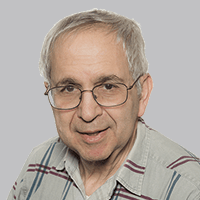
Karl Freed receives Norman Maclean Faculty Award
June 3, 2019 — Karl Freed received the Norman MacLean Faculty Award in recognition of his contributions to teaching and student life at the University of Chicago. He has mentored many students, postdocs and visiting researchers, welcoming them all with an open-door policy.
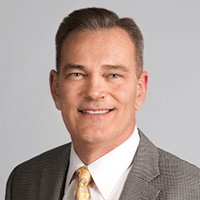
Greg Voth receives the Boys-Rahman Award
May 6, 2019 — Greg Voth is the recipient of the 2019 S. F. Boys–A. Rahman Award from the Royal Society of Chemistry for his development and application of powerful multiscale theoretical and computational methods in the study of liquids, materials, biomolecules, and quantum mechanical systems. The award honors outstanding innovative research in computational chemistry.

Greg Voth receives the Joel Henry Hildebrand Award in the Theoretical and Experimental Chemistry of Liquids
January 21, 2019 — The Joel Henry Hildebrand Award in the Theoretical and Experimental Chemistry of Liquids from the American Chemical Society recognizes his pioneering research on the properties of complex liquid systems, including hydrated protons in water and ionic liquids, using powerful new computational methods.
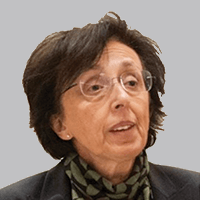
Giulia Galli selected for two prestigious awards in same week
October 23, 2018 — Giulia Galli received the 2018 Materials Theory Award from the Materials Research Society and the 2019 David Adler Lectureship Award in the Field of Materials Physics from the American Physical Society in the same week.

David Mazziotti awarded DOE Grant to Develop Quantum Computing for Chemical Applications
October 10, 2018 — David Mazziotti, along with John Anderson of the University of Chicago and Sabre Kais of Purdue University, has received a $2.5 million grant from the Department of Energy as part of an initiative to advance Quantum Information Science for their project, “Quantum Computing Algorithms and Applications for Coherent and Strongly Correlated Chemical Systems.” The group will develop strategies for predicting and understanding bonding and reactivity by using the power of the quantum computer.

Voth group discovers influenza protein behavior that could aid drug development
September 12, 2018 — As seen in the UChicago news story, researchers at the University of Chicago—including Greg Voth, Jesper J. Madsen, and and University of Kent in the United Kingdom have discovered critical information about the behavior of the influenza A M2 protein.This discovery could lead to drugs that inhibit M2, thus blocking the virus from infecting other cells. Read the full publication in Proceedings of the National Academy of Sciences of the United States of America here.

Nanocrystal links could lead to better electronics
July 18, 2018 — As seen in the Pritzker School of Molecular Engineering news story, Giulia Galli helped fill in the cracks for scientists trying to use nanocrystals to design better electronic and optoelectronic devices. According to research by University of Chicago, Argonne National Laboratory and Max Planck Institute for Iron Research scientists, inorganic links between the nanoparticles themselves are changing and reforming on the surface of the nanoparticles. Read the full publication in Nature Nanotechnology here.

Mazziotti group predicts more accurately by using two-electron interactions
June 1, 2018 — As seen in the UChicago news story, David Mazziotti and graduate student Manas Sajjan presented an innovative method that cuts computational costs and improves accuracy by calculating interactions between pairs of electrons and extrapolating those to the rest of the molecule. Read the full publication in Nature Communications Chemistry here.
